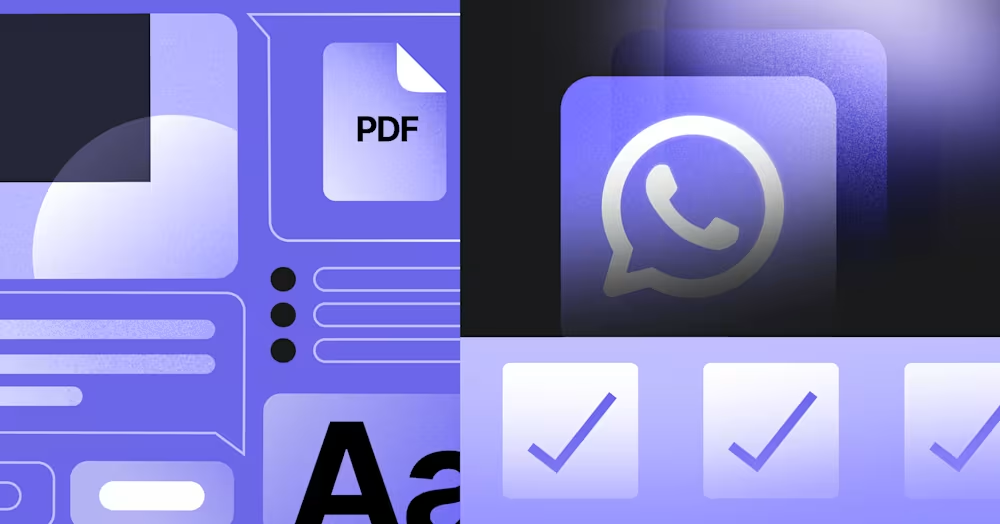
WhatsApp Message Template: A How-to Guide with 13 Examples
Businesses can't send WhatsApp messages after 24 hours unless they use WhatsApp Message Template. Learn how to format and send template messages plus examples.
![LINE CRM: Message Customers With a CRM LINE Integration [Jan 2024]](https://assets2-proxy.respond.io/ph8r57dk1q9w/6sIVI1ciye8cN36VDfjbkh/91288291c209979b14db8a3320f90fcf/LINECRMCover_3c3ba436f7bd5ae5516b1bd45ed1e888.png?q=70&fm=avif)
Are you looking for a LINE CRM integration? This blog post is for you! In this first-hand guide, we’ll cover everything you need to know about getting a CRM LINE integration. Next, we'll delve into using respond.io, an AI-powered customer conversation management software, for LINE marketing, sales and support.
A LINE CRM is the integration between a LINE Messaging API and a CRM. Businesses aim to integrate popular messaging channels like LINE with their CRM for efficient communication management.
However, most CRMs do not have native LINE integration and have to rely on third-party integrations. This is because they were originally built with email as the main communication channel in mind.
Before investing in a LINE CRM integration, here are a few things you should know.
Before integrating a LINE CRM, businesses must know how to use LINE for business and what integration options CRMs provide.
Businesses have two choices for using LINE: either the LINE Official Account Manager or the LINE Official Account Messaging API.
The LINE Official Account Manager is designed for businesses receiving low to mid volumes of messages. This option includes basic features such as marking chat statuses as Follow Up or Resolved, adding tags and comments, and sending auto replies and broadcasts.
This can be sufficient for many businesses; however, it lacks advanced automation to route and assign conversations automatically. Plus, it cannot be integrated with external software like a CRM or an omnichannel messaging inbox.
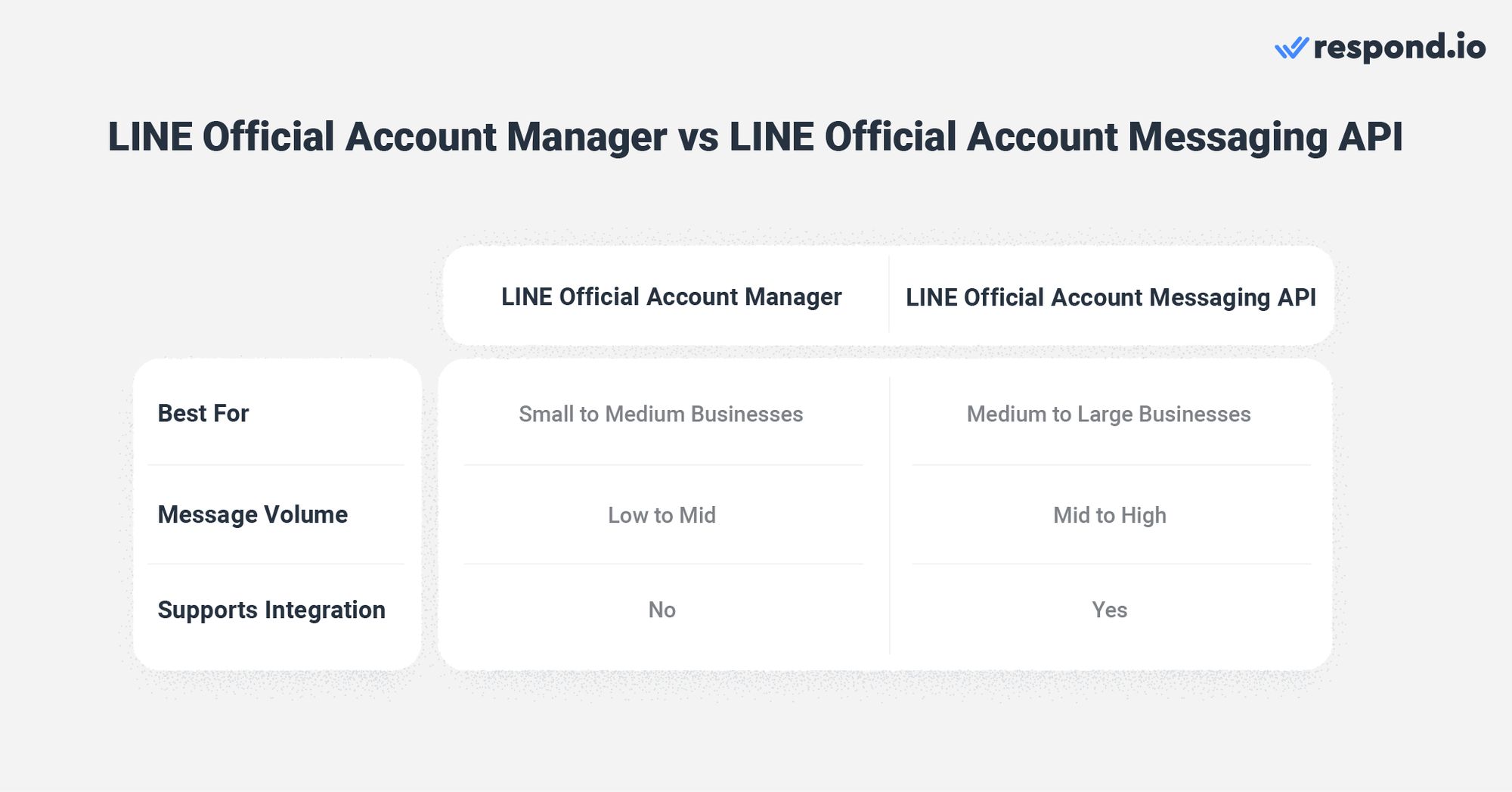
For CRM integration with LINE and advanced automation in managing conversations, the LINE Official Account Messaging API is necessary. However, it does not have an interface because it is just an API.
To send and receive LINE messages, you'll need to connect it to either an AI-powered customer conversation management software like respond.io or a CRM. Note that what you can do with the API depends heavily on the software you choose to connect it to.
To choose the best integration, you need to know the types of LINE integration that CRMs support.
To provide information in this section, we’ve studied three prominent CRMs, namely Salesforce, HubSpot and Zendesk. Out of the three, only Zendesk provides native LINE integration, while the rest rely on third-party integrations.
However, Zendesk doesn’t fully support videos, voice messages and locations. For instance, agents cannot view videos and listen to voice messages in their inboxes. They have to download them to know what customers have sent.
This slows down agents as they have to switch between Zendesk and their downloads folder while managing multiple customers simultaneously.
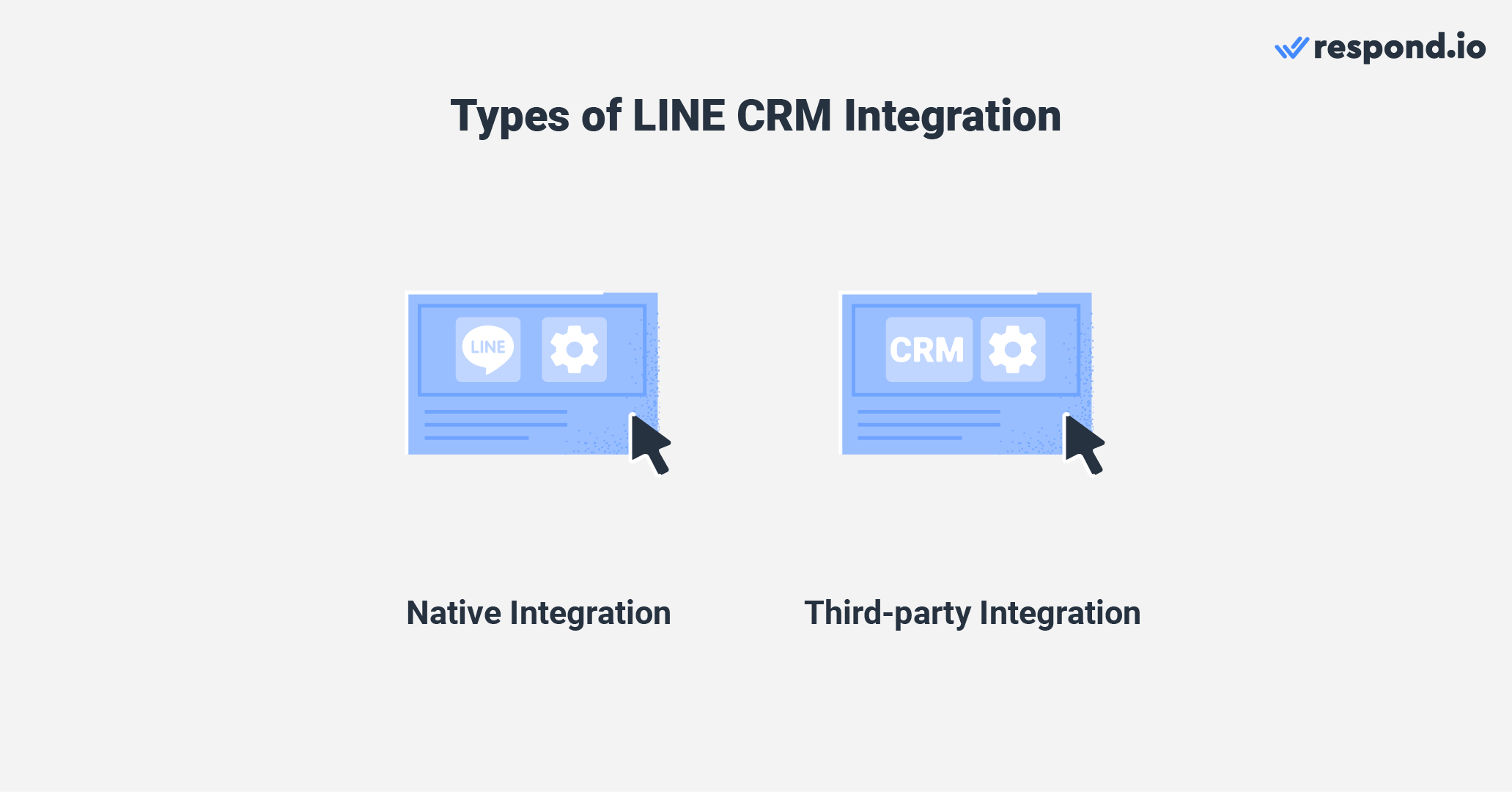
Furthermore, agents might inadvertently open the wrong file, leading to extended case resolution times as they must either re-download the correct content or search for it in their downloads.
In addition, the native integration limits the LINE API to a single CRM. If you have multiple CRMs and aim to integrate LINE with all of them, you'll encounter limitations that prevent this.
Fortunately, most CRMs, even those with native LINE integration, allow third-party integrations. This enables you to use LINE with a business messaging inbox built specifically for messaging like respond.io.
With respond.io, you can streamline business communication across instant messaging apps along with traditional channels like email and webchat. Plus, it lets you use LINE to its full potential and integrate multiple CRMs with it.
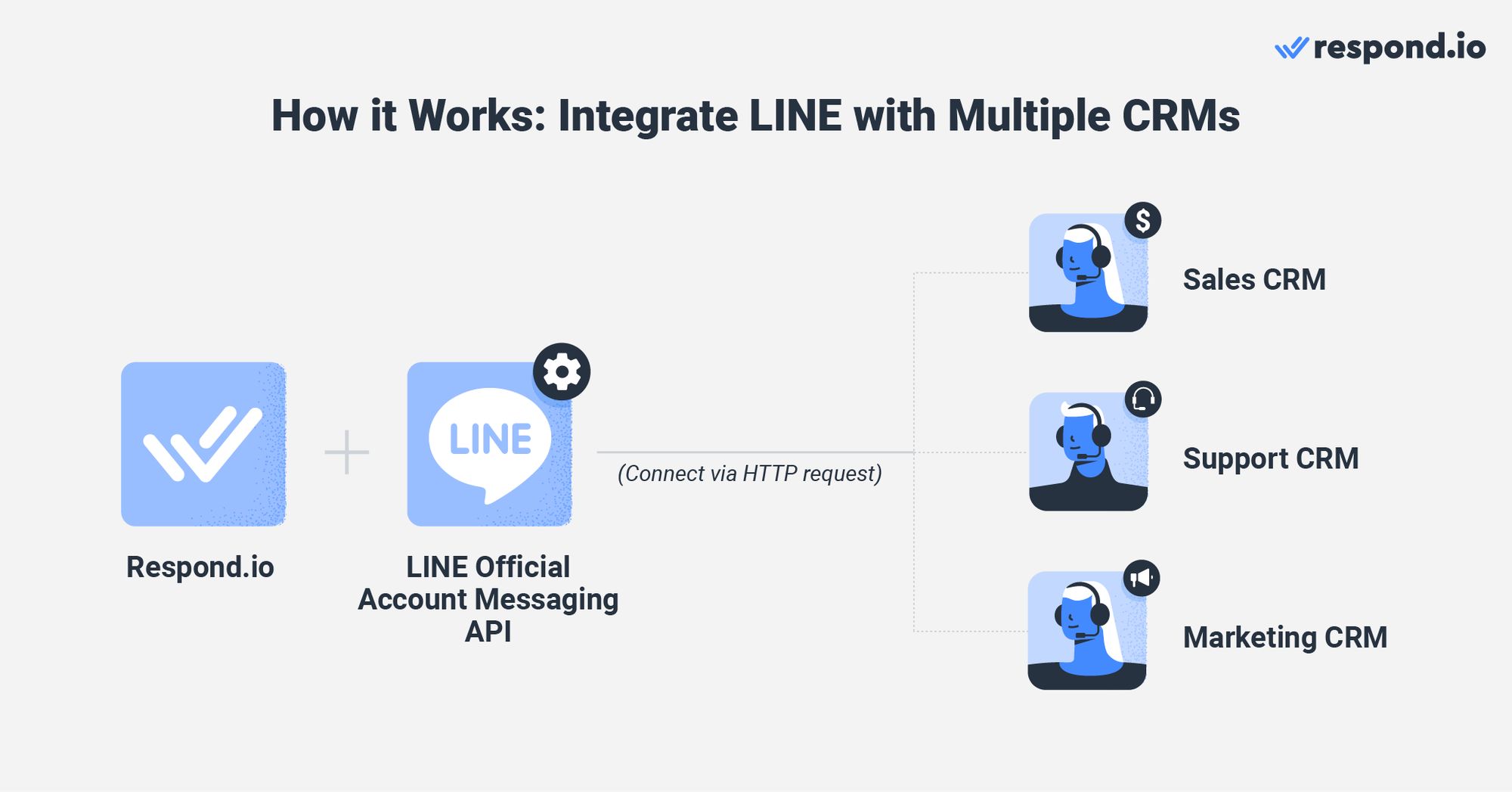
It supports LINE messaging features like sending rich media content, locations and more. Businesses can use advanced tools for tasks like sending broadcasts, automating conversations, routing contacts, and monitoring agent workloads.
Before diving deeper into respond.io’s features, we’ll show you how to integrate any CRM with respond.io to use LINE.
First, create and set up your LINE Official Account and connect it to respond.io. Then, create a new Workflow automation and add the HTTP Request Step to connect LINE on respond.io with any CRM.
This will allow you to exchange information with your existing CRM while messaging customers on respond.io.
You can qualify sales leads, update contact profiles and create deals and tickets in external CRMs without the need to switch between your CRM and the respond.io inbox when responding to LINE messages.
Turn customer conversations into business growth with respond.io. ✨
Manage calls, chats and emails in one place!
With all the necessary information at your disposal, here's how you can utilize respond.io for LINE marketing, sales and support.
Similar to most messaging channels' anti-spam policies, LINE does not allow businesses to import contacts. Therefore, customers must start a conversation with a business to become Contacts.
To gain Contacts, Businesses can encourage inbound conversations with LINE QR Codes, Click to Chat links and LINE Widget.
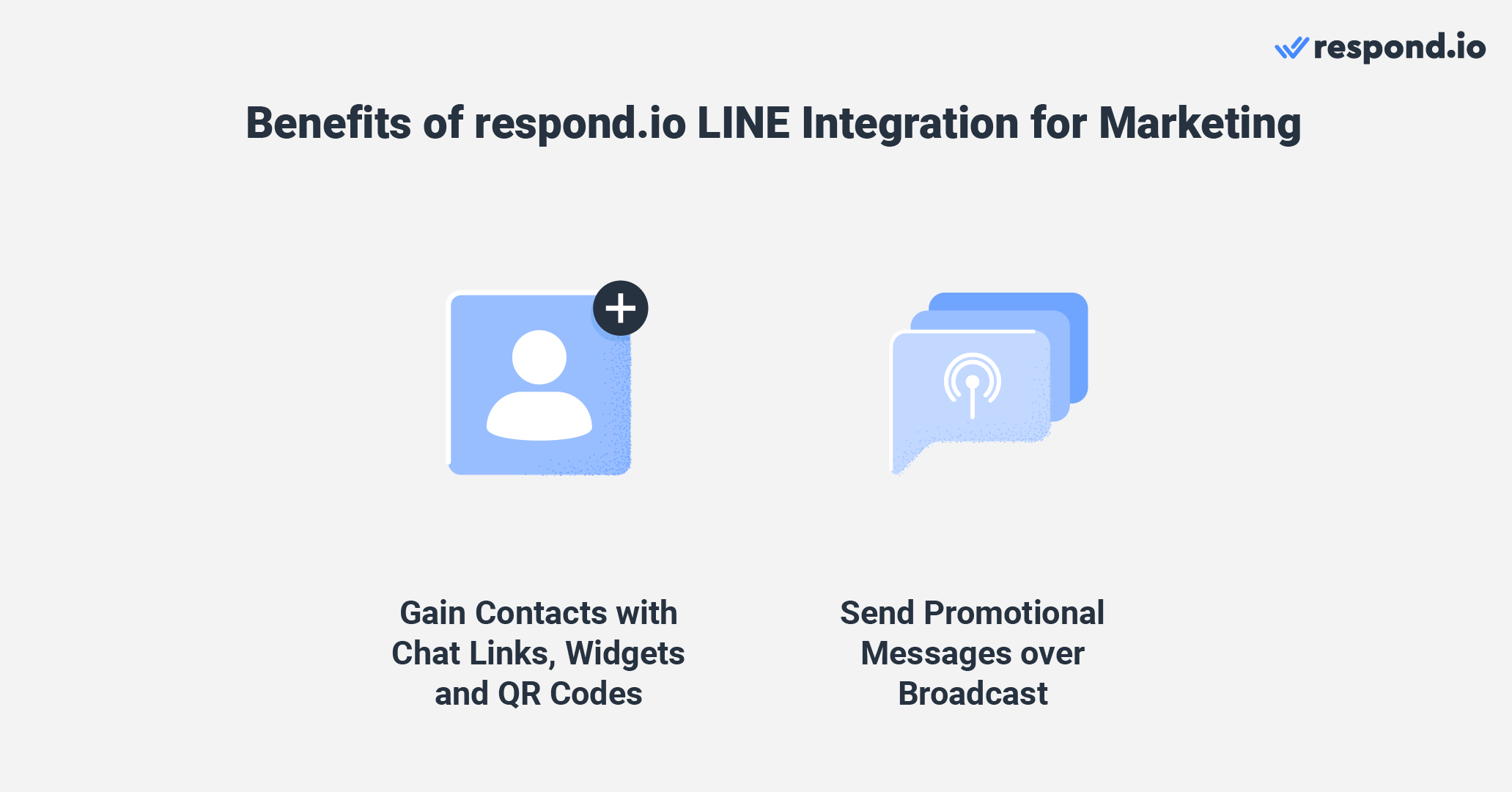
Upon a lead initiating a conversation, gather their contact information to distinguish between new and existing contacts who may have messaged you on another channel.
If they are an existing contact, consolidate their contact details and conversation history into a unified profile to provide a comprehensive view of the contact. You can also exchange and retrieve their contact information on your CRM.
If a lead is new, you will automatically capture their details and add them as a Contact. You can segment them into different audiences to send targeted broadcast messages. Businesses can send broadcast messages at any time with different types of content like images, videos and more.
Integrating a sales CRM with respond.io enables you to exchange information between both platforms. Once connected, you can qualify leads and create deals in your sales CRM from respond.io in one click.
This way, agents are saved from the trouble of switching back and forth between the respond.io inbox and a CRM, allowing them to carry out sales-related tasks while conversing with a customer.
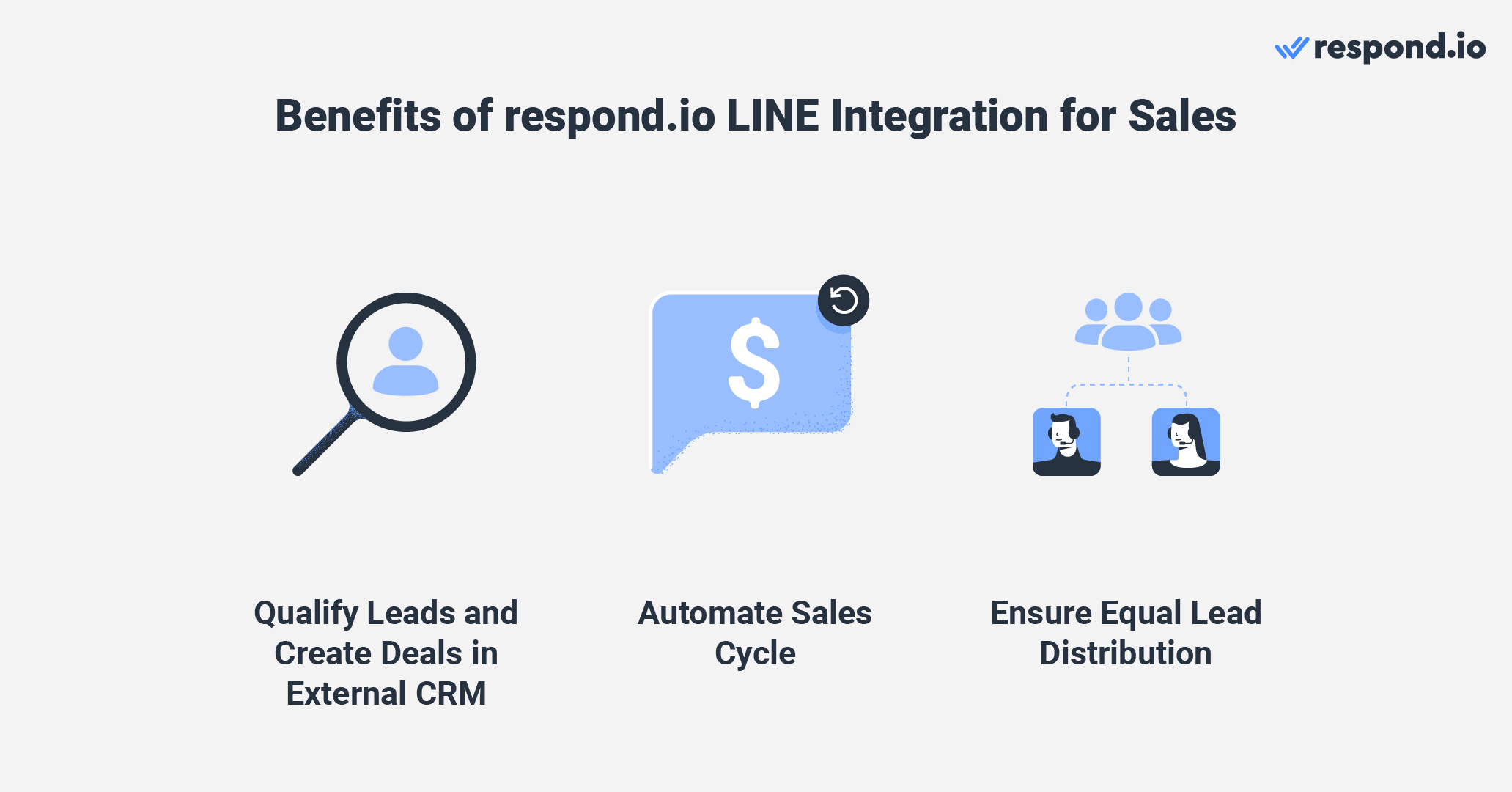
Businesses can also automate sales tasks like lead qualifying, routing leads to the right team and auto-assigning them to the right agent based on the funnel a lead falls into. They can even have an AI Agent to serve as the initial responder to handle routine lead inquiries.
The highly customizable nature of respond.io Workflows enables managers to implement their own routing logic. This includes routing leads by priority access, region, deal size and more.
As agents will have to communicate with customers from different backgrounds, they can use AI Prompts to refine messages for clarity, translate them to overcome language barriers and more so their message is communicated effectively. You can also use this feature for LINE customer support.
Plus, they can ensure equal lead distribution among the sales team and assign existing customers to their dedicated salesperson automatically.
Respond.io’s Workflow automation saves agents from performing repetitive tasks like answering FAQs, asking the same questions to get the context of customers’ issues and more.
Businesses can automate FAQs, send multiple-choice questions to help customers communicate what they want clearly and then route and assign customers according to their needs. Similar to the AI Agent’s capabilities mentioned in the sales use case above, businesses can use AI to handle routine inquiries and escalate complex or sensitive issues to human agents.
This way, agents can direct their time and resources to critical issues to provide quality support. To ease agents' workload further, tools like AI Assist provide agents with quick access to relevant information from knowledge bases or existing resources.
This allows them to respond quickly and accurately to customer inquiries, enhancing response times and contributing to a more satisfying customer experience.
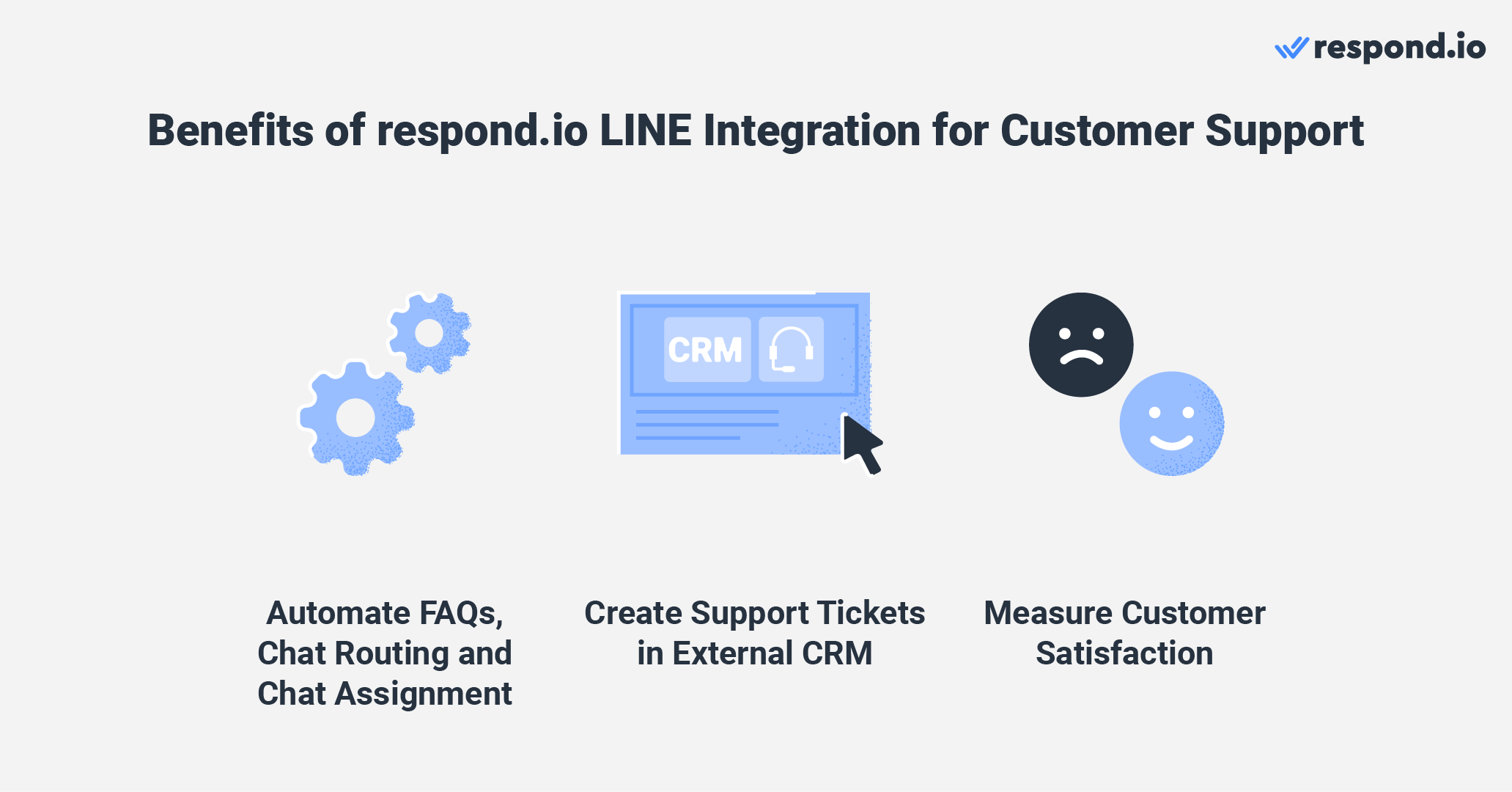
If an agent cannot solve an issue, they can request their manager’s help by describing the case or providing background information through internal comments. Agents can also escalate the case to external CRM platforms with the click of a button while chatting with customers.
After a conversation ends, businesses can send a customer satisfaction (CSAT) survey to measure the success and quality of their customer support. They can also track individual or team performance via the advanced Reports and Analytics Module.
We hope you found our first-hand guide to LINE CRM integration useful. Best of all, they can conduct all their tasks on the go with the respond.io mobile app. Are you ready to integrate LINE with your CRM? Sign up for our free trial and kickstart your LINE journey with us!
Turn customer conversations into business growth with respond.io. ✨
Manage calls, chats and emails in one place!
Did you find this article helpful? If so, here’s some additional reading that might be of interest to you.
Gabriella is a Content Writer at respond.io, specializing as the team’s go-to authority for WhatsApp since 2022. Armed with a Bachelor's in Communication, Gabriella sharpened her skills as a marketing specialist at a web hosting company. Her profound knowledge of messaging apps, the SaaS industry and customer behavior makes her articles indispensable guides for tech-savvy businesses.

Businesses can't send WhatsApp messages after 24 hours unless they use WhatsApp Message Template. Learn how to format and send template messages plus examples.